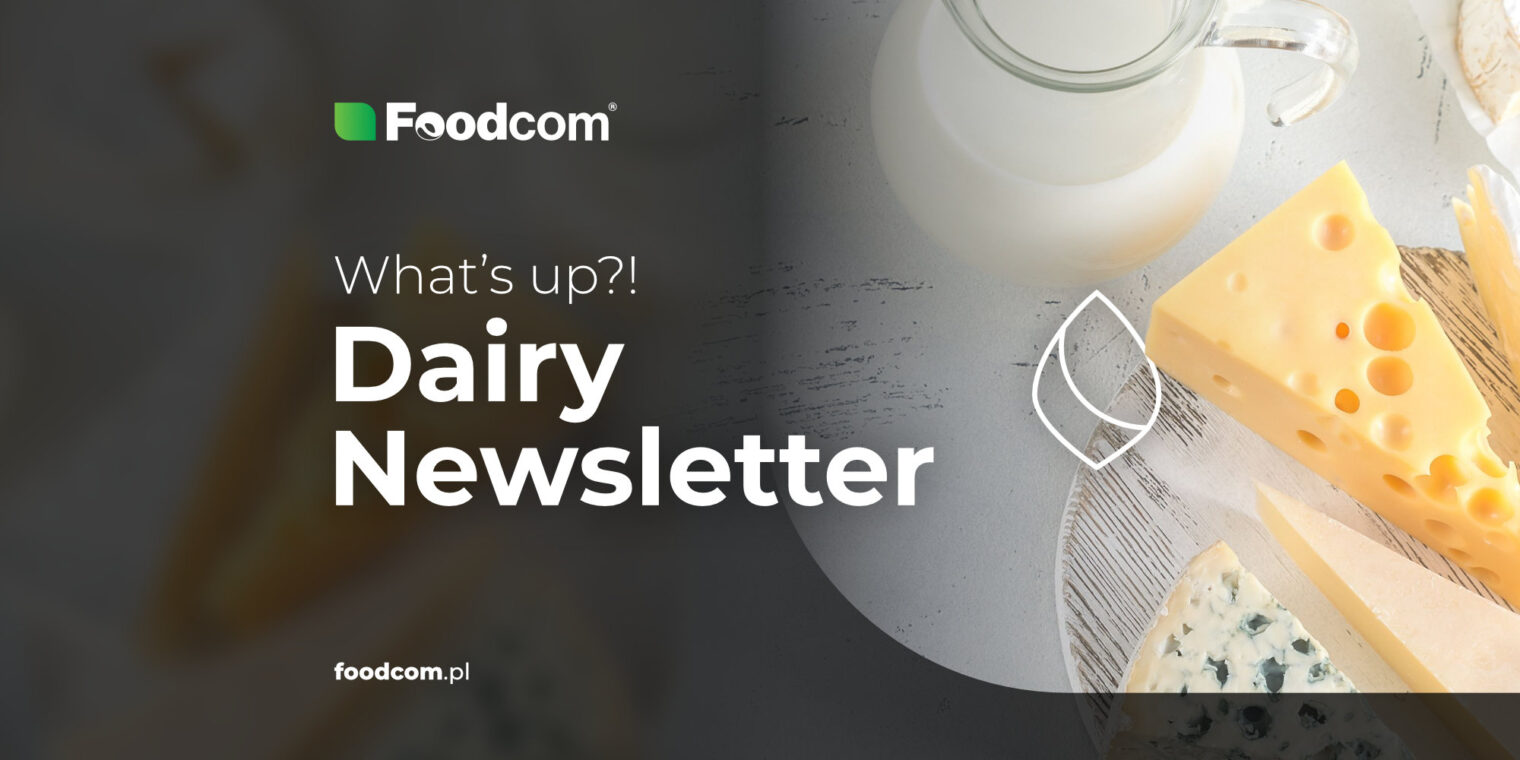Résumé
Table des matières
In Western Europe, dairy producers are struggling with rising labor and energy costs. This situation has contributed to higher dairy prices and has kept stocks low. Inflation prices aside, the market contrived quite well, as people are hooked on holiday season and will probably buy more dairy products.
Shipping problems are easing, especially for products from China. Restrictions have been imposed due to an upsurge in infections there, affecting reduced demand for dairy products. However, the situation is beginning to stabilize, with China’s renewed activity in the market that has been noted. However, there are still delays that extend delivery times. Experts agree: the supply and demand situation on the global dairy market will likely remain tight for some time.
What can we expect in the following months?
Continue reading to learn about this week’s market insights.
After a period of slowdown in late April and May, buyers have been returning to their regular buying patterns. Some sellers are concerned, with the fear that higher gas prices and desiccation costs could affect SMP output. Producers are offering goods for the next month, but few of them are willing to contact forward for the next three to six months – there is quite an uncertainty in the market.
FCMP price dropped after the last GDT event, but in Western Europe FCMP remains stable at a high level. As for the Polish market, the whole milk price increased last week and this fluctuation was reflected in prices. Despite the fact that in many countries we can observe the typical milky weather (for example, in the Netherlands and Poland), the liquid price rose and the FCMP price settled at the current level.
Despite the large volumes of concentrate throughout Europe, the rising costs of both transportation and drying of the product have pushed up the price. The question is how long this trend will persist.
We have seen an oversupply of cheese on the market and a greater focus on cheese production. In general, people are shifting their focus to production with more monetization than WPI (where there are fewer products).
Dutch origin cheeses represented a high price level compared to Polish cheeses. Producers offer cheese above 5150 EUR/MT (Gouda, Edam Dutch style), with contract prices around 5050 EUR/MT. In recent weeks, slightly more cheese has been manufactured. Producers had good cash flow, but these cheeses were not necessarily included in open contracts, but rather produced for storage.
We still find the last offers at the level of 7100 to 7150 EUR/MT, while many end users are not yet covered for Q3/Q4. Moreover, there is currently a big difference between French quotations for butter at 7.70 and German prices at 7.35. This brings a lot of uncertainty for both producers and end users. The price discrepancy was also fairly large between Oceania and the EU itself. U.S. butter production is not running at full capacity due to labor shortages.
Prices for Cream are steady with an upward trend. The last week of good weather benefited cream availability. We can expect cream prices to continue to slightly rise as we are now at the time of year when liquid dairy availability is at its highest.
SMP prices rose by a few percent by week. Milk production in Western Europe is still seasonal. According to some sources, there is still less milk than usual at this time of year. Since the price of SMC affects the price of all other dairy products, it is important to closely monitor price changes before the summer season.
Shipping problems are easing, especially for products from China. Restrictions have been imposed due to an upsurge in infections there, affecting reduced demand for dairy products. However, the situation is beginning to stabilize, with China’s renewed activity in the market that has been noted. However, there are still delays that extend delivery times. Experts agree: the supply and demand situation on the global dairy market will likely remain tight for some time.
What can we expect in the following months?
Continue reading to learn about this week’s market insights.
SMP
After a period of slowdown in late April and May, buyers have been returning to their regular buying patterns. Some sellers are concerned, with the fear that higher gas prices and desiccation costs could affect SMP output. Producers are offering goods for the next month, but few of them are willing to contact forward for the next three to six months – there is quite an uncertainty in the market.
FCMP
FCMP price dropped after the last GDT event, but in Western Europe FCMP remains stable at a high level. As for the Polish market, the whole milk price increased last week and this fluctuation was reflected in prices. Despite the fact that in many countries we can observe the typical milky weather (for example, in the Netherlands and Poland), the liquid price rose and the FCMP price settled at the current level.
SWP
Despite the large volumes of concentrate throughout Europe, the rising costs of both transportation and drying of the product have pushed up the price. The question is how long this trend will persist.
WPC 80
We have seen an oversupply of cheese on the market and a greater focus on cheese production. In general, people are shifting their focus to production with more monetization than WPI (where there are fewer products).
Gouda/Edam
Dutch origin cheeses represented a high price level compared to Polish cheeses. Producers offer cheese above 5150 EUR/MT (Gouda, Edam Dutch style), with contract prices around 5050 EUR/MT. In recent weeks, slightly more cheese has been manufactured. Producers had good cash flow, but these cheeses were not necessarily included in open contracts, but rather produced for storage.
Butter
We still find the last offers at the level of 7100 to 7150 EUR/MT, while many end users are not yet covered for Q3/Q4. Moreover, there is currently a big difference between French quotations for butter at 7.70 and German prices at 7.35. This brings a lot of uncertainty for both producers and end users. The price discrepancy was also fairly large between Oceania and the EU itself. U.S. butter production is not running at full capacity due to labor shortages.
Cream
Prices for Cream are steady with an upward trend. The last week of good weather benefited cream availability. We can expect cream prices to continue to slightly rise as we are now at the time of year when liquid dairy availability is at its highest.
SMC
SMP prices rose by a few percent by week. Milk production in Western Europe is still seasonal. According to some sources, there is still less milk than usual at this time of year. Since the price of SMC affects the price of all other dairy products, it is important to closely monitor price changes before the summer season.
Catégories







